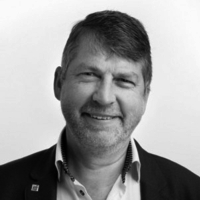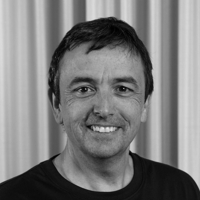Keynotes
Jerker Delsing

Lulea University of Technology, Sweden
Interoperability - the Enabler of Production Automation
Market predictions points to System of Systems integration as the huge market pull for the electronics, components and software industry. Market growth of 8-22 times are predicted until 2025. Key to this growth are embedded system interoperability and simplicity of interoperability engineering for service exchanges between any embedded system participating in System of Systems solutions. Further such interoperability and integration need to be managed and re-engineered in run-time which is in clear contrast to todays solutions that are engineered at design time. Thus autonomous engineering of interoperability solutions in run-time is of core interest. A current trend to achieve such run-time manageable System of Systems solutions is the usage of interoperable micro services whose interaction can be orchestrated and re-orchestrated in run-time to achieve desired and new functionalities meeting market requirements. Here other dimensions apart for functionalities, like e.g. security and maintenance will impose correlated and non-correlated constrains. Yet another dimension is micro-service business, implementation and execution. Here micro-services will be owned by different stakeholders who need to integrate machine executed business transactions into their companies and associated administrative and legal structures.
Biography
Prof. Jerker Delsing received the M.Sc. in Engineering Physics at Lund Institute of Technology, Sweden 1982. In 1988 he received the PhD. degree in Electrical Measurement at the Lund University. During 1985 - 1988 he worked part time at Alfa-Laval - SattControl (now ABB) with development of sensors and measurement technology. In 1994 he was promoted to associate professor in Heat and Power Engineering at Lund University. Early 1995 he was appointed full professor in Industrial Electronics at Lulea University of Technology where he currently is with the EISLAB group, http://www.ltu.se/eislab. His present research profile can be entitled IoT/SoS Automation, with applications to automation in large and complex industry and society systems. Prof. Delsing and the EISLAB group has been a partner of several large EU projects in the field, e.g. Socrades, IMC-AESOP, Arrowhead, FAR-EDGE, Productive4.0 and Arrowhead Tools.
Pascal Thubert

CISCO, Sophia-Antipolis, France
Towards Reliable and Available Wireless
Deterministic Networking is an attempt to mostly eliminate congestion loss for a committed bandwidth with a guaranteed worst-case end-to-end latency, even when co-existing with best-effort traffic in a shared network. Wireless networks operate on a shared medium where uncontrolled interference, including the self-induced multipath fading, adds another dimension to the effects of statistical multiplexing that affect the delivery. Leveraging diversity in the spatial, time, code, and frequency domains can alleviate those effects by and provide a Reliable and Available service while preserving energy and optimizing the use of the shared spectrum. Reliable and Available Wireless (RAW) is a new effort and a new Working Group at the IETF that extends DetNet to approach end-to-end deterministic performances in a network with scheduled wireless segments, and possibly frequency/time-sharing physical resources with stochastic traffic. While the generic Problem Statement for DetNet applies to both wireless and wired, the media are fundamentally different at the PHY level, and the skills and methods involved in achieving RAW will differ from those used on wires.
Biography
Pascal Thubert has been actively involved in research, development and standards efforts on Internet mobility and wireless technologies since joining Cisco in Y2K. He currently works at Cisco's Chief Technology and Architecture office, where he focuses on products and standards in the general context of IPv6, wireless, and the Internet of Things. He co-chairs 6TiSCH, the IETF Working Group focusing on IPv6 over the 802.15.4 TSCH deterministic MAC, and LPWAN, which applies IPv6 over low power wide area networking technologies. His current interests also include in deterministic networking applied to radio networks (RAW) and an update of IPv6 ND for wireless (WiND). Earlier, he specialized in IPv6 as applied to mobility and wireless devices and developed routers and switches microcode in Cisco's core IPv6 product development group. In parallel with his R&D missions, he has authored multiple IETF RFCs and draft standards dealing with IPv6, mobility and the Internet of Things. In particular, Pascal co-authored standards such as the ISA100.11a specification, as well as the NEMO, 6LoWPAN, RPL and now 6lo and DetNet at the IETF, in an effort to bring together the broad features of the IT/OT convergence for an Industrial Internet.
Eduardo Tovar

CISTER Research Centre in Real-Time and Embedded Computing Systems, Portugal
Information processing for extreme dense sensing: timeliness and scalability issues
Large-scale and dense sensor/actuator deployments pose fundamental challenges concerning both interconnectivity and processing of huge quantities of information. Think about the simple example of obtaining the minimum value among cents of sensor readings. Or think about the more sophisticated active flow control application where through proper modulation of aircraft skin surfaces a significant reduction of drag and related fuel consumption (and emissions) may be attained. Currently available approaches for data processing in such large-scale very dense deployments of sensors lead to energy-waste and long response-times from sensing to actuation. This talk will address emerging techniques that are able to allow scalable and efficient data processing in large-scale dense cyber-physical systems.
Biography
Eduardo Tovar was born in 1967 and has received the Licentiate, MSc and PhD degrees in electrical and computer engineering from the University of Porto, Porto, Portugal, in 1990, 1995 and 1999, respectively. Currently he his Professor in the Computer Engineering Department at the School of Engineering (ISEP) of Polytechnic Institute of Porto (IPP), where he is also engaged in research on real-time distributed systems, wireless sensor networks, multiprocessor systems, cyber-physical systems and industrial communication systems. He heads the CISTER Research Unit, an internationally renowned research centre focusing on RTD in real-time and embedded computing systems. He is deeply engaged in research on real-time distributed systems, multiprocessor systems, cyber-physical systems and industrial communication systems. He is currently the Vice-chair of ACM SIGBED (ACM Special Interest Group on Embedded Computing Systems) and was for 5 years, until December 2015, member of the Executive Committee of the IEEE Technical Committee on Real-Time Systems (TC-RTS). Since 1991 he authored or co-authored more than 150 scientific and technical papers in the area of real-time and embedded computing systems, with emphasis on multiprocessor systems and distributed embedded systems. Eduardo Tovar has been consistently participating in top-rated scientific events as member of the Program Committee, as Program Chair or as General Chair. Notably he has been program chair/co-chair for ECRTS 2005, IEEE RTCSA 2010, IEEE RTAS 2013 or IEEE RTCSA 2016, all in the area of real-time computing systems. He has also been program chair/co-chair of other key scientific events in the area of architectures for computing systems and cyber-physical systems as is the case of ARCS 2014 or the ACM/IEEE ICCPS 2016 or in the area of industrial communications (IEEE WFCS 2014).